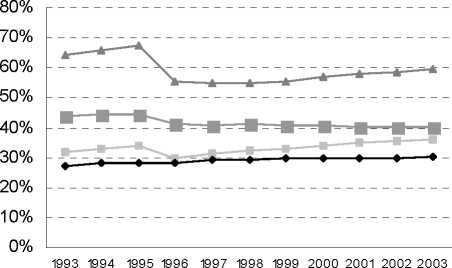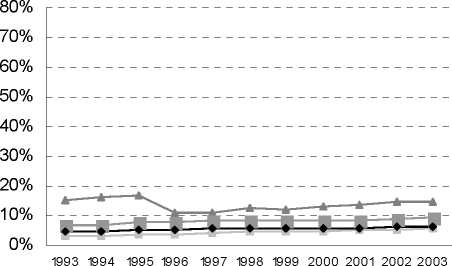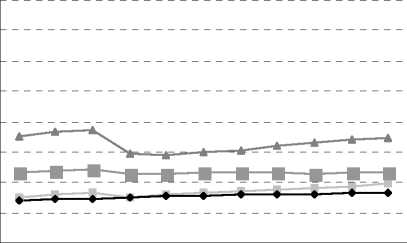Women's Preferences or Delineated Policies?
however in the context of a history of a strong breadwinner model. The next section outlines how
this development occurred.
Figure 3: Part-time Employment in the Netherlands, the UK, Germany and the EU average (as percentage of total
employment in group): 1993-2003


—■— GER men —⅛— NL men д UK men —*— EU men
—■—GER women —⅛—NL women
H UK w omen —*— EU w omen
Source: OECD, 2004.

1993 1994 1995 1996 1997 1998 1999 2000 2001 2002 2003
80%
70%
60%
50%
40%
30%
20%
10%
0%
—GER both —л— NL both -Д- UK both —♦— EU both
Note: The decrease in part-time work in the Netherlands from 1995-1996 reflects a measurement error.
14
AIAS - UvA
More intriguing information
1. Popular Conceptions of Nationhood in Old and New European2. Economie de l’entrepreneur faits et théories (The economics of entrepreneur facts and theories)
3. Accurate and robust image superresolution by neural processing of local image representations
4. The Trade Effects of MERCOSUR and The Andean Community on U.S. Cotton Exports to CBI countries
5. Dementia Care Mapping and Patient-Centred Care in Australian residential homes: An economic evaluation of the CARE Study, CHERE Working Paper 2008/4
6. CAPACITAÇÃO GERENCIAL DE AGRICULTORES FAMILIARES: UMA PROPOSTA METODOLÓGICA DE EXTENSÃO RURAL
7. ISSUES IN NONMARKET VALUATION AND POLICY APPLICATION: A RETROSPECTIVE GLANCE
8. Experimental Evidence of Risk Aversion in Consumer Markets: The Case of Beef Tenderness
9. A production model and maintenance planning model for the process industry
10. The name is absent